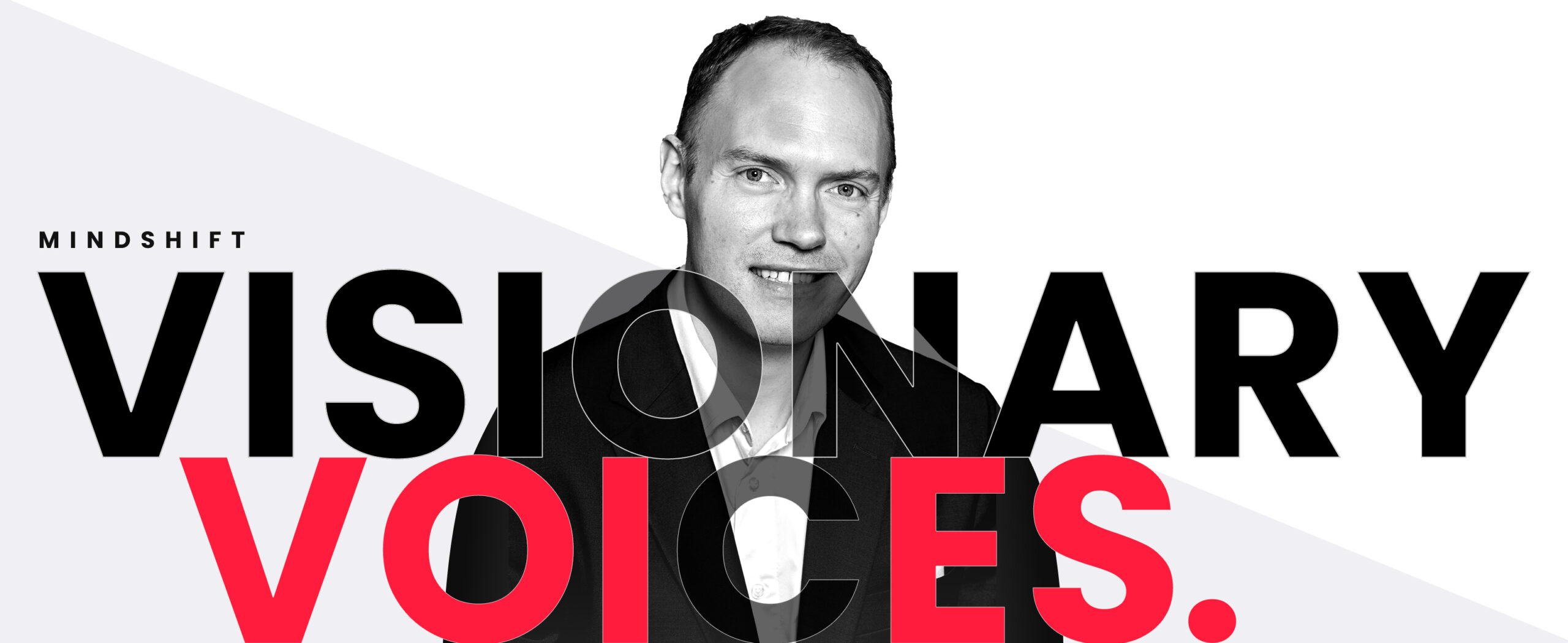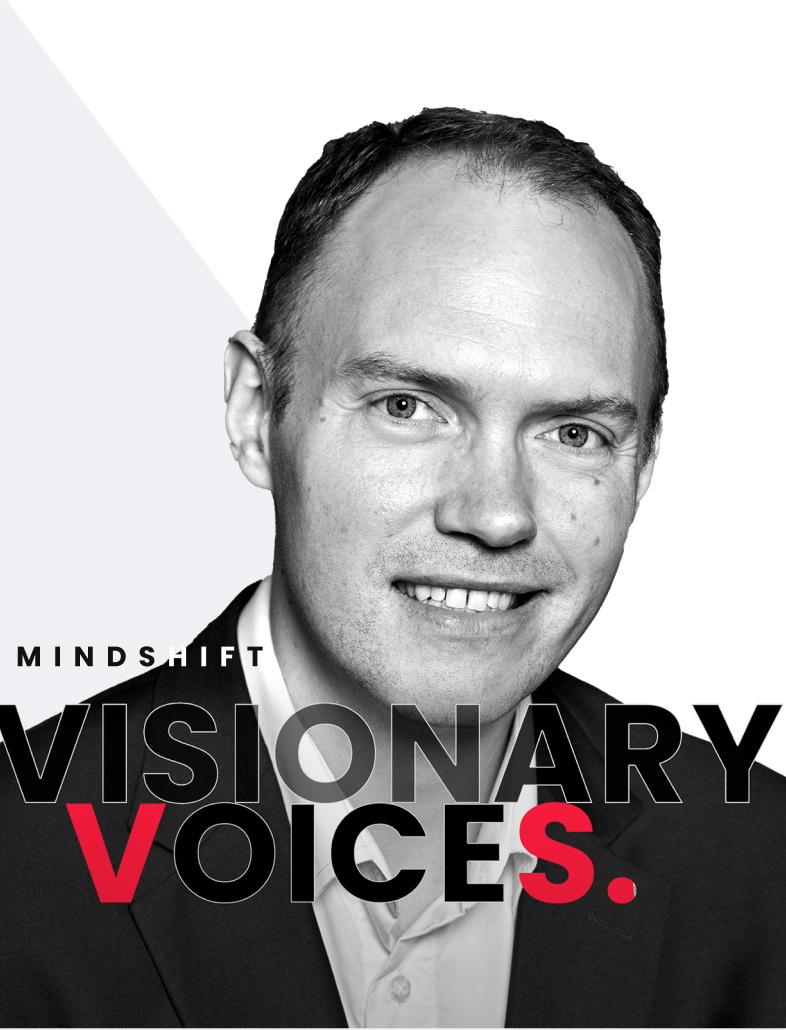

Anders Liu-Lindberg is a global thought leader in strategic finance, business partnering, and the evolving role of the CFO. He is the author of Create Value as a Finance Business Partner and Communicating Financials to Executives, influential books that have helped reshape modern finance practices.
We sat down with Anders to discuss the modernization of the finance function and how CFOs can drive revenue growth.
You often say finance should be a profit driver, not just a cost center. What does that look like in practice for CFOs?
There’s the narrative that CFOs are known for; they are people who cut costs and can whip the company into shape, if you will. But you can’t save yourself to greatness, right? You must grow the company at some point; otherwise, there’s no company left. Very few CFOs are on that growth agenda. It’s more “CF no” than it’s “CF grow”, if you will.
CFOs need to see themselves as value architects in the whole company, not just someone who you turn to when you need to cut costs or make the company leaner. CFOs need to work on all of the value creation agenda.
CFOs need to say, “We’re going to grow the top line 20% next year.” That doesn’t mean the CFO is literally growing the top line by 20 percent; rather, they are enabling the business to do it.
CFOs need to be right next to those who are driving the business forward, growing the company, and creating value.
What’s the biggest thing holding CFOs back from that transformation?
It’s mindset; plain and simple. I’ve polled thousands of finance professionals on this over the years, and mindset consistently comes out as the top blocker, far above processes, systems, or even talent shortages. Many CFOs have risen through accounting, where the focus is on accuracy, control, and risk avoidance. That makes it very hard to operate in the ambiguity and speed that modern business demands.
In today’s world, you can’t wait until something is 99% certain before you act. You have to be willing to take part in decisions where things are messy and imperfect. And that’s uncomfortable for a lot of finance professionals. But growth happens outside of the comfort zone. Until CFOs are willing to shift their mindset from control to collaboration and from precision to impact, they won’t unlock their full potential.
Do you see this changing with the next generation of CFOs?
Yes, and it has to. The CFO role has evolved so much over the past couple of decades that climbing the traditional ladder through accounting or treasury just isn’t enough anymore.
Today’s CFO needs a much broader perspective. That might mean taking lateral moves into operations, commercial roles, or even owning a P&L. You must understand the business, not just the books.
Boards and CEOs are increasingly looking for strategic leaders who can think big, influence change, and engage across functions. So yes, I believe the new generation of CFOs will emerge with more diverse experiences and a more agile mindset. And that’s exactly what the future of finance requires.
How does your conception of “business partnering” fit into this new model?
Business partnering is the glue that connects finance to the rest of the organization. It’s not just about delivering reports faster or building dashboards; it’s about influencing decisions and helping leaders make better choices.
I look at three core indicators to measure success as a business partner. First, is the business succeeding? If the company isn’t achieving its goals, finance can’t claim to be doing its job well. Second, are your internal customers/business stakeholders satisfied with the support you’re providing? If not, you’re not truly adding value. And third, can you point to specific strategic initiatives where finance plays an active role in driving outcomes? If all you did was sit in the back and take notes, you weren’t a business partner; you were merely a spectator. True partnering means facilitating change, pushing for choices, and helping teams take action with confidence.
Can you give an example of how CFOs can directly influence strategy?
Sure. Let’s say the company is developing a new three-year strategy. Typically, the executive team goes offsite, brainstorms a long list of ideas, and comes back excited to pursue them all.
That’s where the CFO needs to step in. First, by quantifying the value of those ideas and understanding what will create the most impact. Then, by benchmarking against peers and best-in-class players, both within and outside the industry. Finally, the CFO should facilitate the discussion around making hard choices. Strategy is about saying no, not yes. If we don’t make deliberate choices, we don’t have a strategy. And who better than the CFO to force that clarity by using insight, objectivity, and a deep understanding of trade-offs?
How has the CEO–CFO relationship evolved in this context?
Traditionally, the CEO was the visionary, and the CFO was the gatekeeper. But today, they’re becoming true co-pilots. The CEO brings ambition, foresight, and a big picture. The CFO brings insight, structure, and realism. But it’s not about being the person who always says no; it’s about helping the organization say yes to the right things. That requires trust and collaboration.
A strong CEO–CFO partnership can elevate the entire C-suite. If that relationship is purely transactional, finance remains a back-office function. If it’s strategic, finance becomes a driver of transformation.
Why do so many finance transformations fail?
Because we overlook human elements. Every transformation, whether digital, operational, or strategic, ultimately comes down to one thing: a person who needs to work differently. If we don’t support them through that change, we don’t see results. I’ve seen too many projects where the technology is bought, the consultants are hired, and the process map is drawn, but no one invests in changing behavior. That takes leadership, time, and patience. It also takes a consistent effort over years, not months.
Too often, the CFO doesn’t stay the course, and there can be many different reasons for why that is, but they don’t stay the course. And then you’re not going to see the change. It takes at least two to three years before you start seeing real results. It’s not just saying, hey, now we have 100 pro Power BI licenses; it’s going to work fine. It takes a lot more than that.
How should finance approach risk in this new era?
We need to reframe risk, not as something to avoid, but as something to manage proactively. Risk and opportunity management have to be an active discussion in everything we do when it comes to making decisions. Too often, finance is seen as the function that says “no” because of risk. That’s the wrong mindset. All decisions carry risks. Our job is to bring structure to that conversation: What are the trade-offs? How can we mitigate downside? How can we amplify upside? We need to treat risk and opportunity as two sides of the same coin. Finance must be at the center of that dialogue, not standing on the sidelines with a red flag.
What impact is AI having on the finance function?
AI is accelerating both the speed and quality of insights. What used to take days or weeks to produce, AI can now generate in minutes. That frees up time for deeper, more strategic thinking. But there’s a caveat: insight alone isn’t enough. CFOs need to develop the ability to qualify and interpret those insights. We’re moving from doing the work to validating the work. The human role doesn’t disappear; it shifts to a higher level of influence and judgment.
What excites you most about the future of finance? And what concerns you?
I’m excited by the potential for finance to become the “situation room” of the organization. With the right data and AI tools, you can walk into the office every morning and instantly understand where the business stands: operationally, financially, and strategically. You will be equipped to scenario-plan and respond in real-time.
What concerns me is whether our people will be ready for that future. Change is scary. Many finance professionals fear losing control or relevance. But we should be excited—because this shift unlocks incredible new opportunities to create impact. That’s the mindset we need to cultivate. Whenever AI has developed to the next level, you just know you’re ready to step to the next level; that you’re not fighting with AI, you’re just enjoying and celebrating every time you get a chance to step to the next level.
What’s your top piece of advice for CFOs today?
Make a commitment to step outside your comfort zone every single day. Growth doesn’t happen by accident. It’s a choice. And it’s a daily discipline. I had to teach myself to network, speak publicly, and lead change; none of that came naturally. But it made all the difference. If you want to be a high-impact CFO in the future, you have to start growing now. That starts with a mindset shift and the courage to keep pushing your own boundaries.



